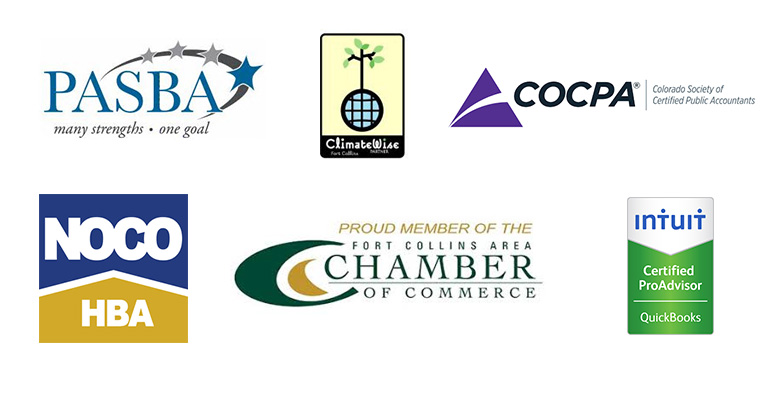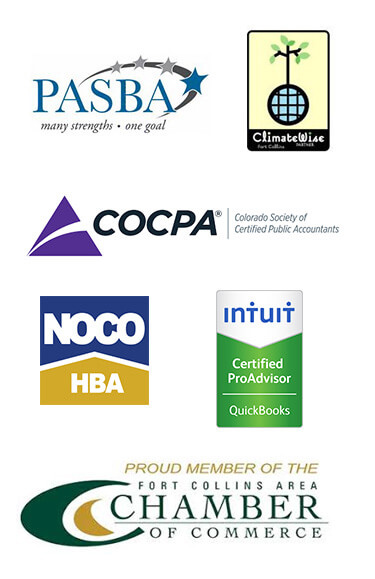Accounting for Optometrists
The transformative power of targeted professional accounting becomes evident when practices engage with CPAs who truly understand their unique industry dynamics. Specialized accounting services go beyond basic number-crunching; they provide strategic insights that help healthcare professionals make informed decisions about practice models, financial structures, and long-term sustainability. By partnering with an accounting firm that comprehends the nuanced financial ecosystem of optometry, practitioners can unlock potential, optimize their operations, and ultimately deliver better patient care while maintaining personal and professional balance.
The Value of Industry-Specific Financial Expertise for Optometrists: Why an Optometry CPA is Essential for Your Practice
In today’s evolving healthcare landscape, optometrists face crucial decisions that can significantly impact their practice’s success and sustainability. One of the most critical choices is whether to operate under an insurance-based model or transition to a private-pay system. This case study explores how professional guidance from an experienced optometry CPA helped one practice owner navigate this complex decision-making process and transform his struggling practice into a thriving business.
If you haven’t realized the importance of having a finance manager for your eye clinic, read on.
Facing and Surviving the Challenges of Keeping an Optometry Practice: The Story of Matt
Dr. Matt Anderson had followed the traditional path that many optometrists take: accept insurance, build the practice, and focus on growth. Like many healthcare providers, he believed that accepting insurance was the only viable way to maintain a successful practice. However, as his patient base grew, Matt found himself caught in an increasingly demanding cycle that didn’t align with his vision for patient care.
Despite working extended hours and seeing more patients than ever, his practice was barely breaking even—and in some months, operating at a loss. The administrative burden of insurance processing required additional staff, yet the reimbursement rates barely covered his overhead costs. The situation reached a critical point when several key employees resigned, citing burnout from the intense workload and complicated insurance procedures.
Overwhelmed and frustrated, Matt made the difficult decision to temporarily close his clinic. He needed time to reassess his approach and find a sustainable solution that would allow him to provide quality care while maintaining financial stability.
Seeking Help from an Eye Clinic CPA
Optometry often intersects with healthcare and retail, creating a unique set of financial challenges and opportunities. An optometry CPA or a finance manager for an eye clinic brings a depth of understanding that goes beyond general accounting principles. They are familiar with:
- The rhythm of optometry practices, including seasonal fluctuations in patient visits and product sales.
- The complex billing and insurance reimbursement processes specific to eye care.
- Inventory management for both medical supplies and retail products like frames and contact lenses.
- Compliance requirements for healthcare providers, including HIPAA regulations and ADA compliance.
- The latest technology investments that can impact both patient care and practice efficiency.
This specialized knowledge allows an optometry accountant to provide more targeted and effective financial advice, helping practices optimize their operations and maximize profitability. Obviously, Matt’s practice was missing professional financial monitoring. He took a close look at his books and realized that despite working tirelessly, his income was suffering. The revelation was stark: accepting insurance, which he believed to be boosting his bottom line, was actually causing him to lose money. Overwhelmed and facing burnout, he made the difficult decision to temporarily close his clinic to reassess his strategy.
At the heart of his dilemma was the classic debate in optometry: insurance versus private pay.
Private pay vs taking insurance
Accepting private pay simply means taking payments directly without insurance, and it has several benefits. For one thing, it offers more flexibility when it comes to treatment programs. For example, optometrists can schedule treatment sessions based on your specific medical needs without adhering to insurance guidelines. For another, clients can have the optometrist of their choice without restrictions. On the contrary, insurance pay means using an insurance plan to cover the costs of therapy.
Both systems have their merits and drawbacks. Accepting insurance, including Medicare, can often lead to a larger patient base. However, this approach can also pressure practitioners to see four or more patients an hour to offset lower reimbursement rates, potentially compromising the quality of care.
Private-pay practices, while serving a smaller patient base, offer greater flexibility in pricing, reduced administrative burden, and more time for individualized care. This model allows practitioners to set their own fees based on the value they provide rather than being constrained by conditions that an insurance company allows.
Recognizing the need for specialized financial guidance, Matt reached out to us at SJ Wick & Associates, a CPA firm with extensive experience in optometry practice management. This decision marked a turning point in his journey toward creating a more sustainable and fulfilling practice model.
An Optometry CPA to the Rescue
Steve Wick, our firm’s principal CPA, conducted a thorough analysis of Matt’s practice. Being a seasoned optometry accountant, among others, Steve’s approach was comprehensive: “First we figure out where we’re at and then where we want to be.” Through detailed discussions, they identified Matt’s core priorities: providing exceptional patient care, maintaining work-life balance, and ensuring financial sustainability. This evaluation led to the central question: should Matt continue accepting insurance, or was it time to consider a private-pay model?
Explains Steve: “Insurance typically brings in customers. Then there’s the other side. If you go totally private pay, you don’t have that that stream for marketing (and overhead). And you’ve got to become a marketer and spend a bunch more money to get clients back in the door again. So, what is right?”
Marketing and Overhead: The Other Aspects of the Business That Need to be Tackled
The analysis went beyond the basic insurance versus private-pay comparison. Steve and his team at SJ Wick & Associates examined multiple factors that would influence the success of either model.
Speaking from experience, Steve says: “Optometrists, even dental practices, MediSpas and the like, use ads that mostly go on TV. And they have competition. So how are you going to compete, and which levels are you going to compete? How are you going to find customers? More importantly, how much money are you making by employee and on advertising dollars? Are you going to accept insurance, do the private pay customers only, or a mixture of those?
Steve has a lot to say about overhead and marketing in terms of optometry practice, but ultimately, he says that everything hinges on who you want to be. These are the same questions Steve asked Matt. The optometrist needs to choose between providing quality time and service with his clients, and pushing down to lower levels just to cover all business expenses.
Overhead
The evaluation revealed that insurance processing was consuming approximately 30% of staff time and creating significant overhead costs. A private-pay model would substantially reduce these administrative expenses, allowing for a leaner, more efficient operation without sacrificing quality of care.
Advertising
Marketing strategies would need to shift significantly under a private-pay model. Rather than competing on insurance acceptance, the practice could focus on communicating its value proposition: exceptional care, personalized attention, and advanced treatment options. This approach would attract patients who prioritize quality over insurance coverage.
The Decision and Transformation: The Next Steps with an Optometry CPA
After careful consideration of all factors, and per Steve’s experience-based advice, Matt chose to transition to a private-pay model. This decision aligned perfectly with his original vision: providing comprehensive, unhurried care to each patient while maintaining a healthy work-life balance. With a solid financial plan and clear business goals developed with SJ Wick & Associates, Matt reopened his practice with renewed confidence and purpose.
“Either you take the insurance and find out how to shrink your time so that you are making money on those customers or find opportunities for yourself and upsell enough to make the money.” It’s similar to a restaurant offering customers a dessert after the main course.
While it would mean investing more in marketing to attract patients, it also offered the opportunity to provide personalized care. A proper accounting for optometry practice was clearly needed. We walked our client through the financial projections, showing how fewer patients at higher rates could lead to better profitability and reduced stress.
The decision wasn’t easy, but he ultimately chose to transition to a private pay model, which allowed him to focus more on giving high-quality service. It does mean being more hands-on to the business side of his practice but it also became possible to create a thriving optometry business that benefits both him as an optometrist and his patients.
Your Practice, Your Future: Making Informed Decisions with an Optometry CPA Behind You
The healthcare landscape is competitive and optometrists need every advantage they can get. While it might seem like an unnecessary expense to seek out an eye clinic CPA when a general accountant could handle the basics, the long-term benefits far outweigh the costs.
An optometry CPA or dedicated finance manager for an eye clinic brings a level of expertise that can transform your practice’s financial health. From optimizing tax strategies and ensuring compliance to providing strategic guidance for growth, these professionals offer value that goes far beyond basic accounting services.
If you’re an optometrist looking to take your practice to the next level, consider searching for an “eye clinic CPA near me”. Finding the right financial partner can be the key to unlocking your practice’s full potential, helping you navigate the complex world of optometry finance with confidence and skill.
SJ Wick & Associates understands the complexities of an optometry practice, aside from other industries, and we can help you figure out the best options for your business to achieve your financial goals. If you are interested in our proven accounting techniques and strategies, give us a call today and unlock your potential.




